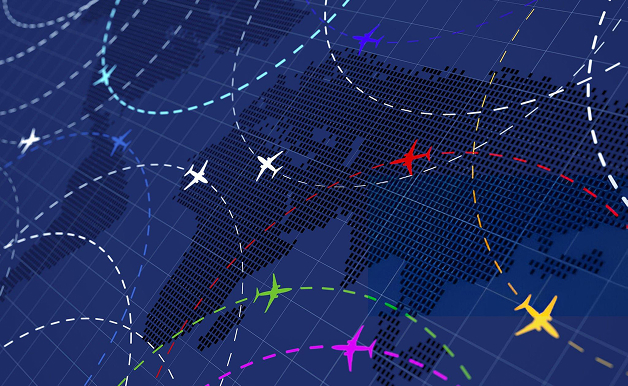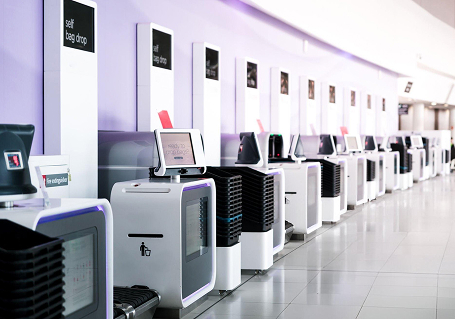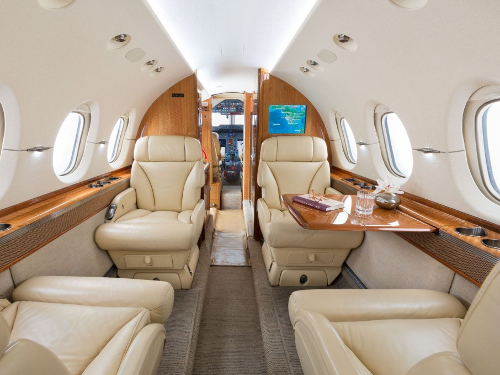
Artificial intelligence (AI) is no longer a futuristic concept, it is a present-day driver of innovation in the aviation sector. From smarter airports to optimized flight operations, AI is reshaping how airlines and aviation service providers operate. In this article, we examine how AI is transforming the aviation industry, highlighting its key applications, current benefits, and future potential.
1. What is Artificial Intelligence in the Context of Aviation?
At its core, artificial intelligence refers to the simulation of human intelligence in machines that are programmed to think like humans and mimic their actions. In aviation, this translates into sophisticated systems capable of analyzing vast amounts of data, identifying patterns, making predictions, and even automating complex tasks.
- Machine learning: A subset of AI, is particularly crucial. It allows aircraft systems, ground operations software, and air traffic control platforms to learn from historical data without being explicitly programmed. This enables them to improve performance over time, whether it’s refining flight path calculations or predicting potential maintenance issues.
- Computer vision: Another key AI component, empowers systems to “see” and interpret visual information. This is vital for tasks like automated aircraft inspections, security screening, and even monitoring passenger flow within airports.
- Predictive analytics: Uses AI algorithms to forecast future events based on historical and real-time data. In aviation, this means predicting weather patterns with greater accuracy, anticipating equipment failures, or forecasting passenger demand. These capabilities are fundamental to the advancements we’re witnessing across the industry.
2. AI in Flight Operations and Scheduling
The pursuit of efficiency and punctuality is paramount in aviation, and AI is proving to be an invaluable ally. Airlines and private operators are increasingly leveraging AI to:
- Optimize Flight Paths: AI algorithms can analyse real-time weather data, air traffic conditions, and aircraft performance metrics to calculate the most fuel-efficient and time-saving routes. This not only reduces operational costs but also contributes to a lower carbon footprint.
- Reduce Fuel Consumption: By precisely calculating optimal speeds, altitudes, and flight paths, AI directly impacts fuel efficiency. Predictive analytics can also anticipate the best times to refuel or route aircraft to airports with lower fuel prices.
- Improve On-Time Performance: AI-powered tools can provide highly accurate weather predictions, anticipate potential delays due to air traffic congestion, and even suggest optimal crew and aircraft scheduling to minimize disruptions. Real-time flight adjustments based on dynamic data inputs ensure smoother operations.
3. Predictive Maintenance and Aircraft Health Monitoring
One of the most impactful applications of AI in aviation is in predictive maintenance. Instead of relying on scheduled maintenance checks, AI analyzes data streams from thousands of sensors embedded throughout an aircraft.
By monitoring parameters such as engine temperature, vibration levels, hydraulic pressure, and electrical system activity, AI can identify subtle anomalies that may indicate an impending failure. Machine learning models learn the typical operating behavior of components and can flag deviations that precede breakdowns.
This proactive approach offers several critical benefits:
- Prevents Mechanical Failures: Addressing potential issues before they escalate significantly enhances safety and reduces the risk of in-flight incidents.
- Minimizes Downtime: Instead of grounding an aircraft for routine checks, predictive maintenance allows for targeted repairs at scheduled intervals, maximizing aircraft availability.
- Improves Safety: By ensuring that aircraft are consistently in optimal working condition, AI directly contributes to a safer flying experience for everyone.
4. Smart Airports and Passenger
The passenger journey, often fraught with potential friction points, is also being enhanced by AI. Smart airports are leveraging AI to create a more seamless, personalized, and efficient travel experience:
- Facial Recognition for Check-in and Boarding: AI-powered facial recognition systems are streamlining the check-in process, security checks, and boarding, reducing wait times and the need for physical documents.
- Baggage Handling Automation: AI is being used to optimize baggage routing and tracking, minimizing lost luggage and improving the speed at which bags reach their destinations.
- Personalized Travel Experiences: From suggesting gate information based on real-time passenger flow to offering tailored retail or dining recommendations, AI can personalize the airport experience.
- Queue Management Systems: AI can analyze passenger traffic patterns to dynamically manage queues at security checkpoints, immigration, and boarding gates, redistributing staff and resources as needed.

Self-service electronic counters for baggage drop at the airport. Printing bag tags for passengers.
5. AI in Traffic Management
The sheer volume of aircraft movements and complex airspace regulations makes air traffic management a prime candidate for AI integration. AI is enhancing these systems by:
- Managing Flight Data: AI can process and analyze vast amounts of flight data in real-time, providing air traffic controllers with a clearer, more comprehensive picture of the airspace.
- Predicting Congestion: By analyzing historical traffic patterns, weather, and flight schedules, AI can predict potential areas of congestion, allowing for proactive rerouting and spacing of aircraft.
- Improving Communication: AI can facilitate smoother communication between different air traffic control systems, aircraft, and even between human controllers by identifying potential conflicts and recommending optimal solutions.
6. Challenges and Ethical Considerations
Despite the immense promise, the integration of AI in aviation is not without its hurdles and ethical considerations:
- Data Privacy and Security: The use of AI often involves collecting and processing vast amounts of sensitive passenger and operational data. Ensuring robust data privacy and cybersecurity measures is paramount to maintaining trust and preventing breaches.
- Overreliance on Automation: While AI can significantly augment human capabilities, an overreliance on automated systems without adequate human oversight could lead to unforeseen issues if the AI encounters scenarios it wasn’t trained for. The balance between automation and human expertise is critical.
- Regulatory Issues: The aviation industry is heavily regulated. Developing and approving AI-driven systems requires rigorous testing, validation, and the establishment of new regulatory frameworks to ensure safety and accountability.
- Bias in Algorithms: If the data used to train AI models is biased, the AI itself can perpetuate or even amplify those biases, leading to unfair outcomes in areas like scheduling or passenger service.
7. The Future of AI in Aviation
The trajectory of AI in aviation points towards even more transformative changes in the coming years:
- Autonomous Aircraft: While fully autonomous commercial passenger aircraft are still some way off, AI is already enabling advanced levels of automation in cargo planes and military operations. The development of AI copilots, capable of assisting human pilots with complex decision-making and workload management, is also a significant area of research.
- Integration with Other Technologies: The convergence of AI with other cutting-edge technologies like blockchain (for secure data management and transparent supply chains) and the Internet of Things (IoT) (for vast data generation from connected devices) will unlock new levels of efficiency and intelligence across the aviation ecosystem.
- Enhanced Passenger Personalization: Expect even more deeply personalized travel experiences, from dynamic pricing and loyalty programs to AI-powered in-flight entertainment and personalized cabin environments.
- Advanced Predictive Analytics: AI will become even more adept at predicting not just mechanical failures but also market trends, passenger behavior, and global events that could impact aviation operations.
As we look ahead, Artificial Intelligence in Aviation is set to redefine safety, efficiency, and the very experience of air travel. The industry is embracing AI not just as a tool for optimization but as a fundamental pillar for future growth and innovation.
